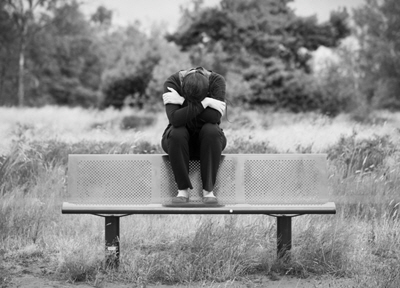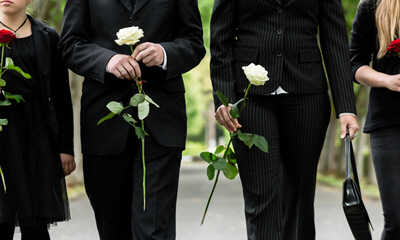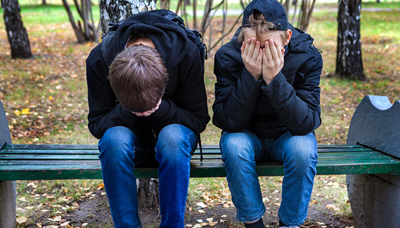 What was here yesterday is gone today.
What was here yesterday is gone today.
You’re stunned!
Something terrible has happened, and you don’t know what to do. You feel afraid, alone, lost, numb, and unable to function. Devastated! Isolated! Shocked!
You feel like everyone is looking at you in a strange way or avoiding you altogether.
You can’t think straight. You just can’t wrap your head around the reality of the loss.
They say you’re mourning, but you don’t even know what that means. Is uncontrollable sobbing part of the process?
Grief – an overwhelming emotion…
Grief is a strong and natural reaction to loss. Nobody is immune. It’s a process, and you can’t control or prevent it.
If you try to deny or delay it, grief only gets worse. Prolonged denial of loss and avoidance of the reality of loss to escape your emotions can affect you physically and mentally. The consequences can be insomnia, fatigue, depression, anxiety, or even your own physical illness.
Denial can interfere with your ability to live your daily, family, work, or social life.
Remember, grief doesn’t go away on its own. Without grieving loss, later losses will hit you harder, resulting in more grief.
Grief is a more complicated process, especially when you experience a sudden, traumatic, or accidental death of someone close to you. Loss of a person without evidence of a physical body to prove death extends the grieving process.
 Life is filled with losses.
Life is filled with losses.
When the word grief is mentioned, the first thing that comes to your mind is the loss of a loved one. Images of a grieving widow, a cemetery, or a funeral service pop into your mind. Loss of a child is hard to imagine!
Losing important people in our life changes everything. We’re reminded of the loss with every birthday, anniversary, and holiday.
Sadness and grief can result from other serious losses. We experience grief with the diagnosis of a terminal illness, the end of an important relationship, the loss of a friendship, the loss of a job, or the loss of independence that comes with aging or disability.
Many people don’t consider miscarriage, loss of financial stability, retirement, selling the family home, or the loss of safety after a trauma as significant losses. They’re wrong!
Think about the communal grief after 9-11, the death of a movie star, past US president, or a popular personality. Your loss is personal to you. If something or someone was significant to you, even if you never met them, there’s no shame in grieving the loss.
My cat died.
I’m so sorry! The loss of loved ones or life situations aren’t the only things we grieve. Yes, of course, you grieve the loss of your beloved pet. Our furry friends are our companions in life. Their loss can be devastating.
When we don’t make the team, lose out on a job promotion, lose a beloved person, or a friend moves away, we grieve.
Grief is something that we wear on the inside. You never know who is living with grief.
 You feel like it will never end.
You feel like it will never end.
Cultures, religions, and families have rituals and customs to help and support the bereaved. Understanding and supportive friends and family can help. Let them!
Don’t retreat into a shell and avoid people who reach out to you. Remember, they love and care about you.
There is no timetable for mourning and grief. It can last months or years. Some people accept and integrate the reality of loss sooner than others. Don’t let anyone pressure you to “get over it.” Be patient and let the process take the time you need.
It’s all I can think about.
Your loved one may be on your mind forever. I agree that you might never “get over it,” but you will get through it. Yes, a beloved, important person in your life has been taken away, and there’s no way to bring them back.
Traditions, customs, memorials, photographs, and shared memories will be there to help you heal after a loss.
Life can become an emotional roller coaster. You’ll still cry at times. You’ll laugh at times and maybe feel guilty about it. This is all normal.
 I can’t do this alone!
I can’t do this alone!
Whatever the cause of your grief, there are healthy ways to help you cope, ease sadness and pain, find new meaning, and move on with your life.
If you find the loss too much to bear, now is the time to call a grief therapist.
Can you really help me?
You’ve clicked on this page with that question in your mind and finally have found the answer.
My office is a safe space to express feelings and emotions, even the negative ones. I am compassionate and patient. Throughout my career, I have helped people of different religions and cultures through the grief process.
I trained at The Wendt Center for Loss and Healing (formerly The St. Francis Center) in Washington, D.C., and completed all three levels of Thanatology Training. Staying current continues to be a priority to me.
My experience goes back more than 25 years as a social worker for the Pediatric Hospice for JSSA in Rockville, Maryland. Over this time period, I’ve helped teenagers, parents, grandparents, and adults from the ages of 16 to 90.
I can help you! Call me now at (301) 309-8077, and we’ll walk this path together.

